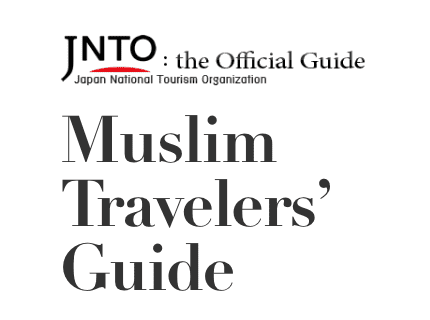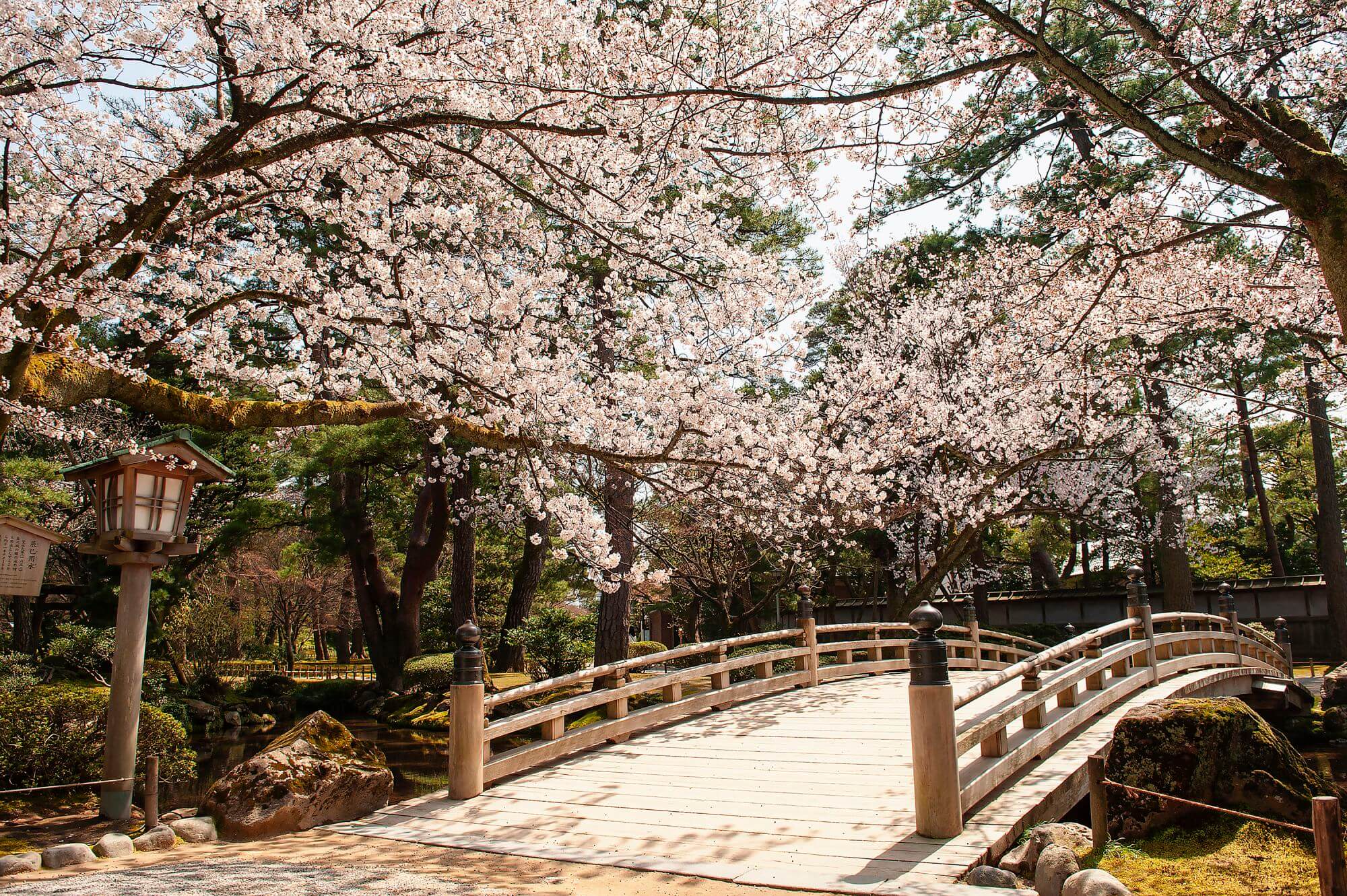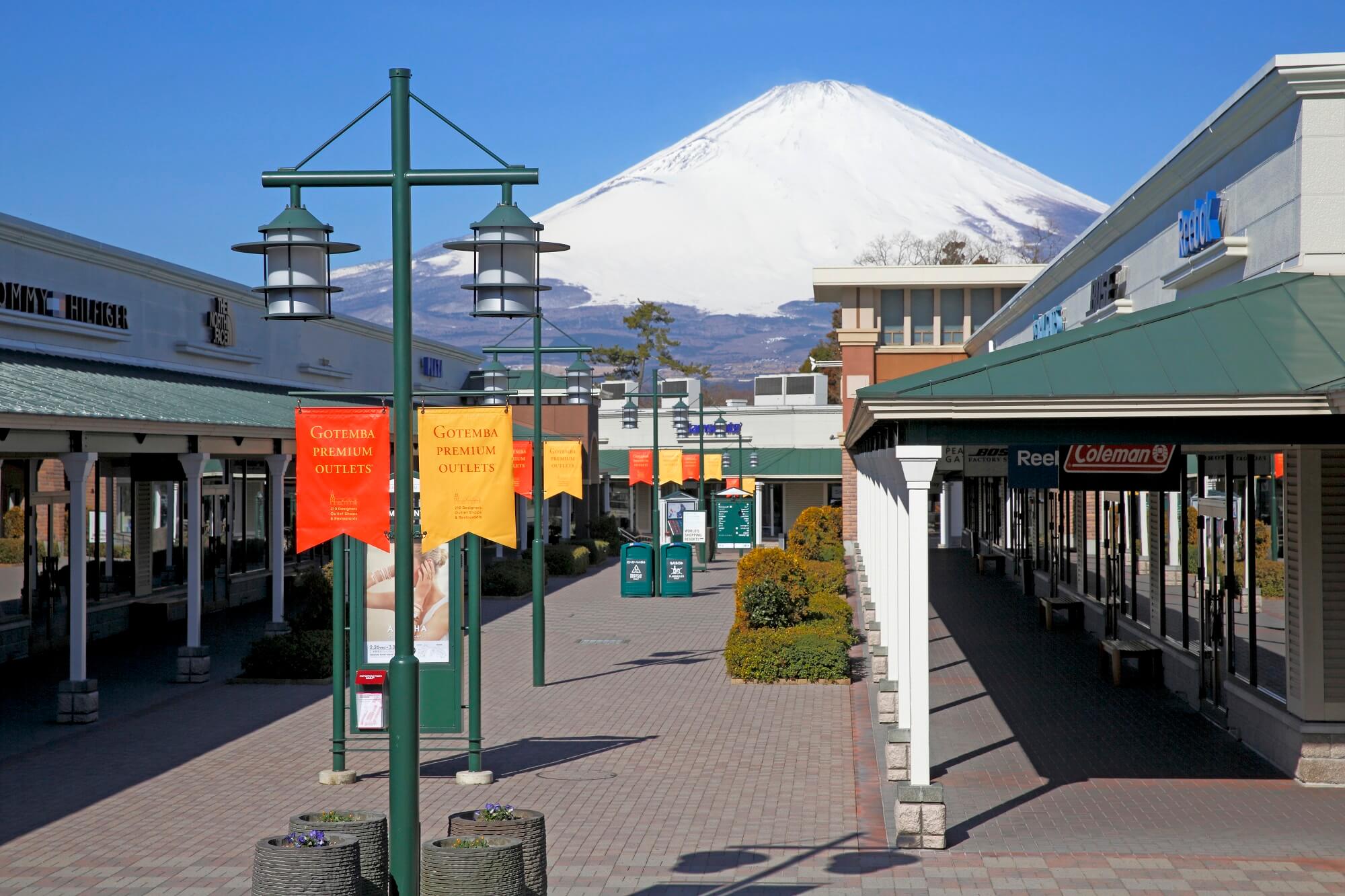A Traveler’s Guide to Miyagi and Iwate: Muslim-Friendly Delights in the Tohoku Region
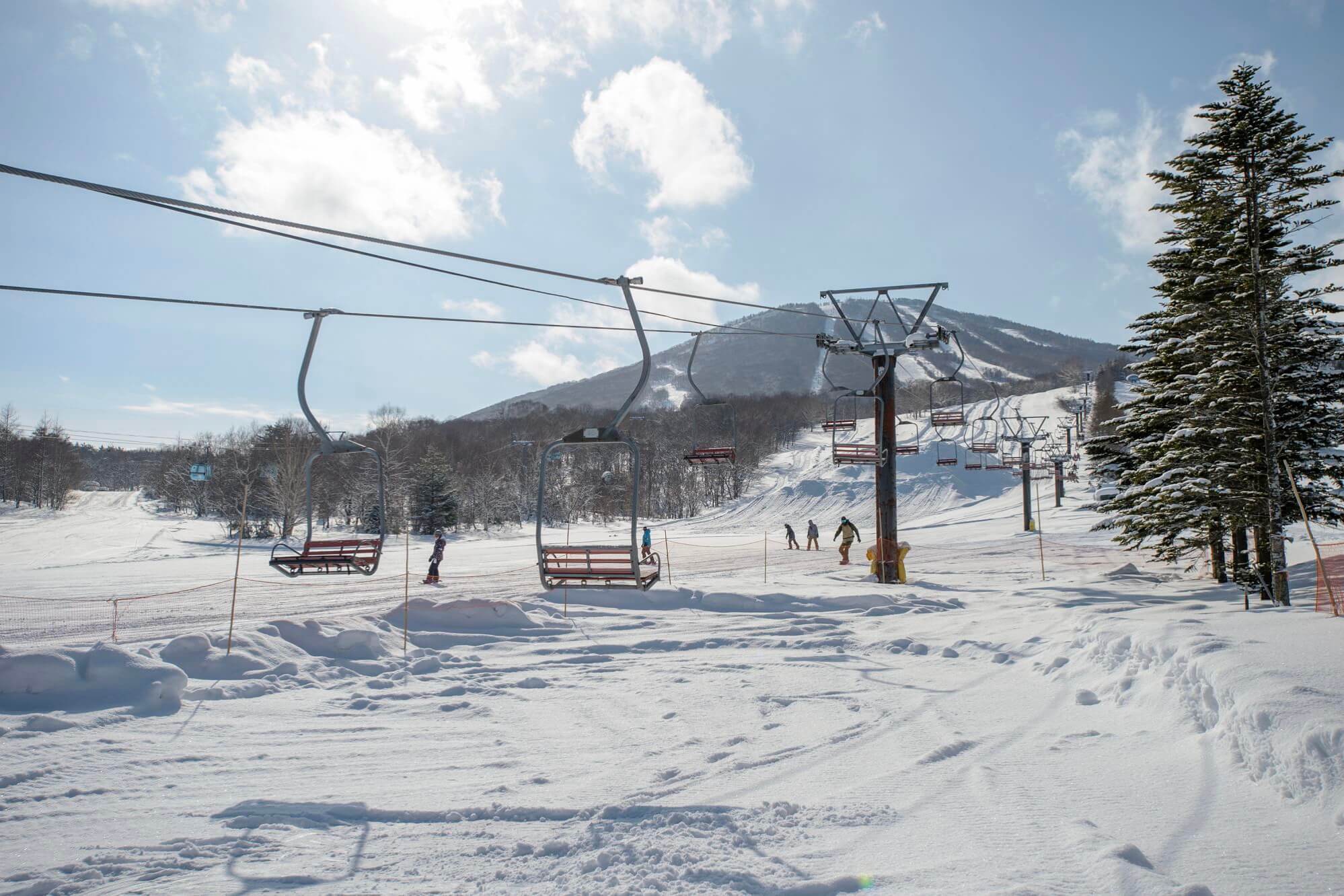
Introduction
Miyagi and Iwate prefectures are located in the Tohoku region of Japan.
They are known for their scenic beauty, rich cultural heritage, and
delicious cuisine. Both prefectures have a number of Muslim-friendly
facilities and services available to make your trip more comfortable.
Zuiganji-Temple
Sendai Agricultural & Horticulture Center Midori-no-Mori
Shiogama Seafood Wholesale Market – Shiogama Bay
Hijab-friendly Kimono Wearing Experience – Matsushima Bay
Miyagi
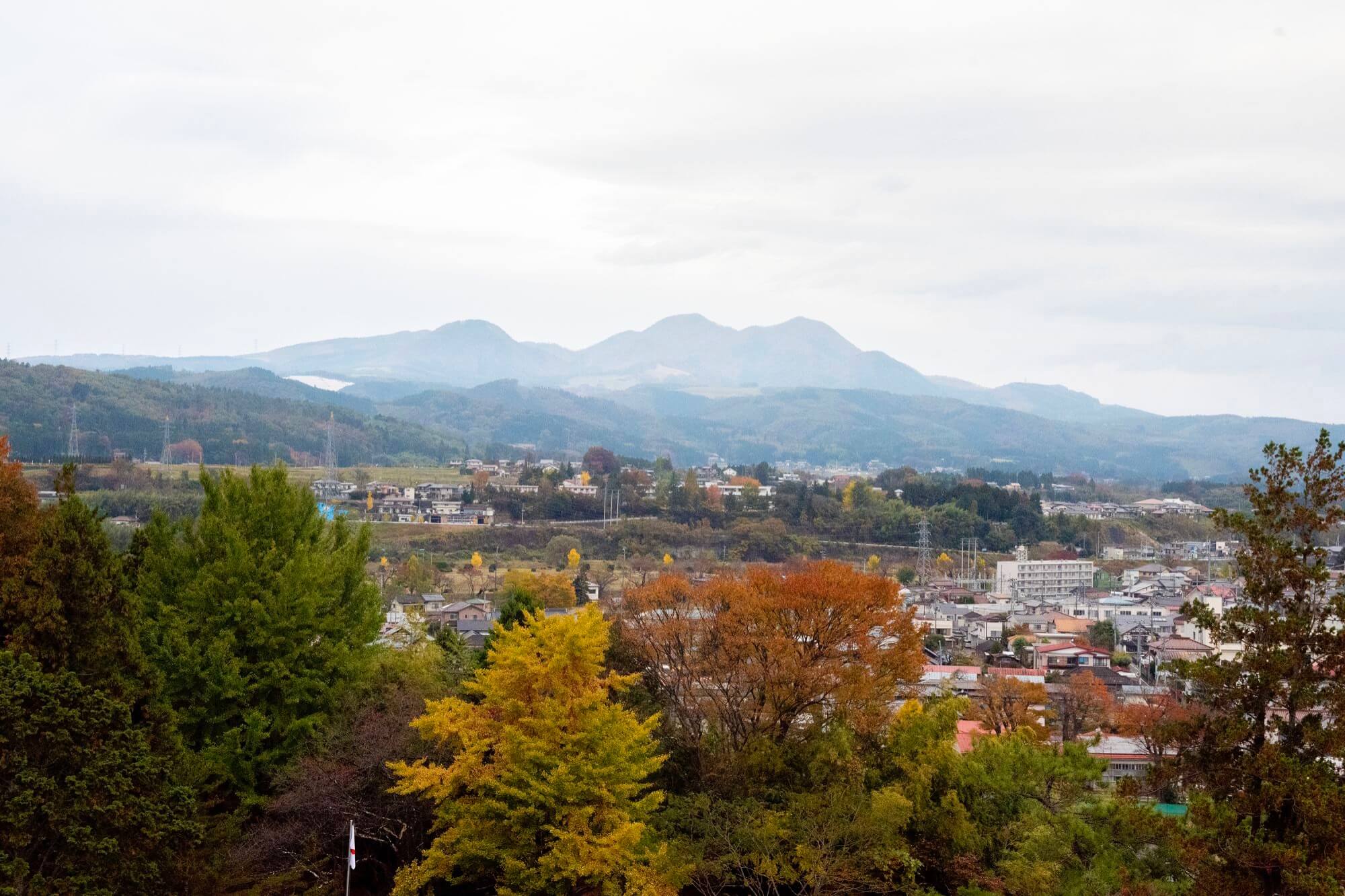
Miyagi Prefecture is located in Tohoku region of Japan, and the capital
city is Sendai. Sendai (the major city in Miyagi) is approximately 305
kilometers North of Tokyo.
Miyagi can be accessed by:
Shinkansen (Bullet Train): The fastest
and most convenient way to travel from Tokyo to Miyagi is by
Shinkansen. Take the Tohoku Shinkansen from Tokyo Station to Sendai
Station. The journey takes around 90 to 100 minutes, depending on the
type of Shinkansen.
Express Trains: Alternatively, you can
take express trains like the Yamabiko and Nasuno, which are not as
fast as the Shinkansen but may be more budget-friendly.
Miyagi boasts a diverse range of attractions, from the lush Matsushima Bay
with its iconic pine-covered islets to historic buildings and modern
cityscapes.
As you traverse the picturesque landscapes and engage with the rich
traditions of Miyagi, rest assured that the Miyagi prefecture offers
Muslim-friendly services, including Muslim-friendly dining options and
facilities that cater to your specific needs. Immerse yourself in the
authentic charm of Miyagi, where ancient traditions meet contemporary
allure, and where the spirit of hospitality awaits you at every turn.
Miyagi also aims to help people of all nationalities and faiths feel at
home during their travels here. To help Muslim visitors enjoy Miyagi
worry-free, you are invited to view
Halal Miyagi,
a guide to establishments which cater to particular needs of Muslim travelers.
1. Zuiganji-Temple
Established by the prominent historical figure, Date Masamune, in 1609,
Zuiganji Temple stands as a testament to the rich cultural and
architectural heritage of Japan. The main temple structure boasts
impressive dimensions, measuring 38 meters in width, 24.2 meters in depth,
and 17.3 meters in height, housing 10 intricately designed rooms. Each
room is adorned with meticulously crafted paintings and sculptures that
harmonise with specific thematic elements, complemented by distinct
ceilings that add to the overall aesthetic appeal.
Elevating its cultural significance, Zuiganji Temple earned the esteemed
title of a national treasure in 1953, recognizing its historical and
artistic value. Notably, since 1985, a comprehensive restoration effort
has been underway for every room within the main hall, faithfully
returning each space to its original splendor. An exception to this
restoration initiative is “The Ink Brush Painting Room,” which has been
preserved in its authentic state, offering visitors a glimpse into the
temple’s historical evolution.
This commitment to preservation underscores Zuiganji Temple’s dedication
to maintaining its architectural authenticity and ensuring a profound
experience for those exploring its hallowed halls.
Address: Chōnai-91 Matsushima, Miyagi
District, Miyagi 981-0213, Japan
Access: 8-10 minutes on foot from JR
Matsushimakaigan Station on Senseki Line or 20 minutes on foot from JR
Matsushima Station on Tohoku Main Line
Website: https://www.zuiganji.or.jp/english/
2. Sendai Agricultural & Horticulture Center Midori-no-Mori
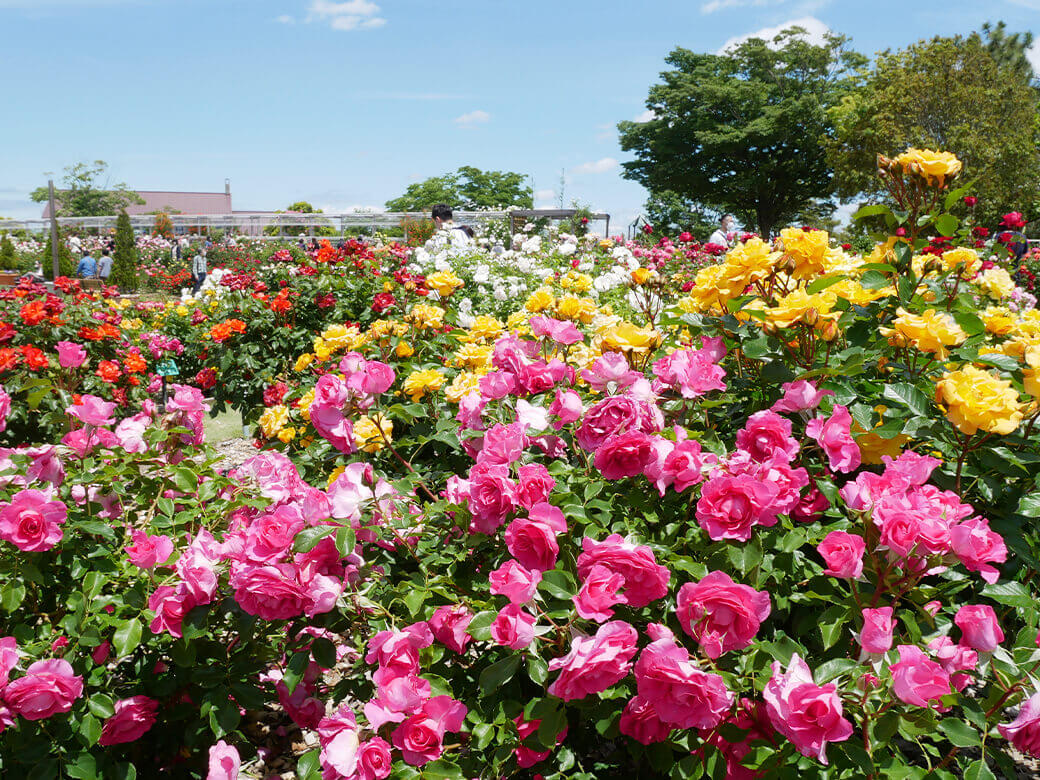
Immerse yourself in the vibrant agricultural and horticultural tapestry of
Miyagi, Japan, at the Sendai Agricultural & Horticulture Center
Midori-no-Mori—a haven that transcends mere recreation. The center invites
you to truly connect with the ebb and flow of the seasons, fostering a
deep appreciation for the essential role that agriculture and nature play
in our lives.
Midori-no-Mori stands as a bustling hub for agricultural enthusiasts and
garden aficionados alike. Providing a unique opportunity to engage with
agriculture firsthand, the center goes beyond mere observation,
encouraging visitors to actively participate in the cultivation process.
These initiatives aim not only to expose individuals to the intricacies of
agriculture but also to kindle a genuine interest and involvement in this
vital aspect of life.
Midori-no-Mori is also located about 30-minute drive from Sendai Masjid.
Sendai Masjid serves as the central hub and administrative headquarters
for the Islamic Cultural Centre of Sendai (ICCS), functioning as both a
home and office for the organisation.
Designed to cater to the Muslim community in Sendai, Sendai Masjid offers
a comprehensive range of religious and cultural activities. These include
daily congregational prayers (Jamaah), Friday Prayers, as well as special
events during the holy month of Ramadan and Eid celebrations.
Address: Kirishinden-13ー1 Arai, Wakabayashi
Ward, Sendai, Miyagi 984-0032, Japan
Access: Sendai Municipal Subway East-West
Line Get off Arai Station
Website (Japanese only): https://www.sendai-nogyo-engei-center.jp/
Islamic Cultural Centre of Sendai (ICCS)
Address: 7 Chome-7-24 Hachiman, Aoba-ku,
Sendai, Miyagi 980-0871
Access: City bus, stop at Hachiman 7 Chome
bus stop then walk for about 5 minutes or using JR train Senzan line stop
at Kuzuoka station then walk for about 18 minutes.
Website: https://www.iccsendai.org/home
3. Shiogama Seafood Wholesale Market – Shiogama Bay
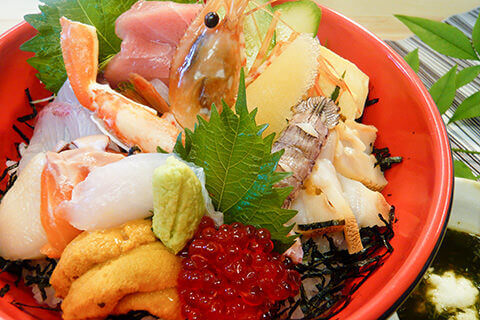
Shiogama stands out as a culinary haven with the highest concentration of
sushi restaurants per capita in Japan, making it an undisputed mecca for
food enthusiasts, particularly those with a penchant for fresh seafood.
Delving into the epicenter of this seafood extravaganza, the Shiogama
Seafood Wholesale Market offers a unique and immersive experience for
enthusiasts eager to elevate their sashimi indulgence.
Here, visitors can take their gastronomic journey a step further by
personally curating their kaisendon (seafood rice bowl), handpicking the
finest catches of the day from an array of offerings. This hands-on
approach makes Shiogama a must-visit destination for those seeking an
authentic and interactive seafood experience.
The market boasts approximately 140 stalls operational on a daily basis,
offering an extensive range of seafood, including fresh catches, dried
products, and prepared items sourced directly from the nearby Shiogama
Port. For Muslim visitors, the market provides an opportunity to indulge
in an array of fresh seafood options, while also accommodating dietary
preferences with seafood meals available upon request.
It’s important to note that certain seasonings commonly used in Japanese
cuisine, such as soy sauce, may not be suitable due to containing alcohol
or other ingredients not permissible in Islamic dietary laws. We advise
bringing your own Halal-certified seasonings to ensure that your dietary
requirements are met during your meals at this restaurant.
To enhance accessibility for non-Japanese speaking tourists, an English
menu is readily available, ensuring a seamless and inclusive experience
for all visitors exploring the diverse culinary offerings at the market.
Address: 1-20-74 Shinhamacho, Shiogama City,
Miyagi Prefecture
Access: 15 minute walk from Higashi-Shiogama
Station, JR Senseki Line
Website: https://www.nakaoroshi.or.jp/lang/en
4. Hijab-friendly Kimono Wearing Experience – Matsushima Bay
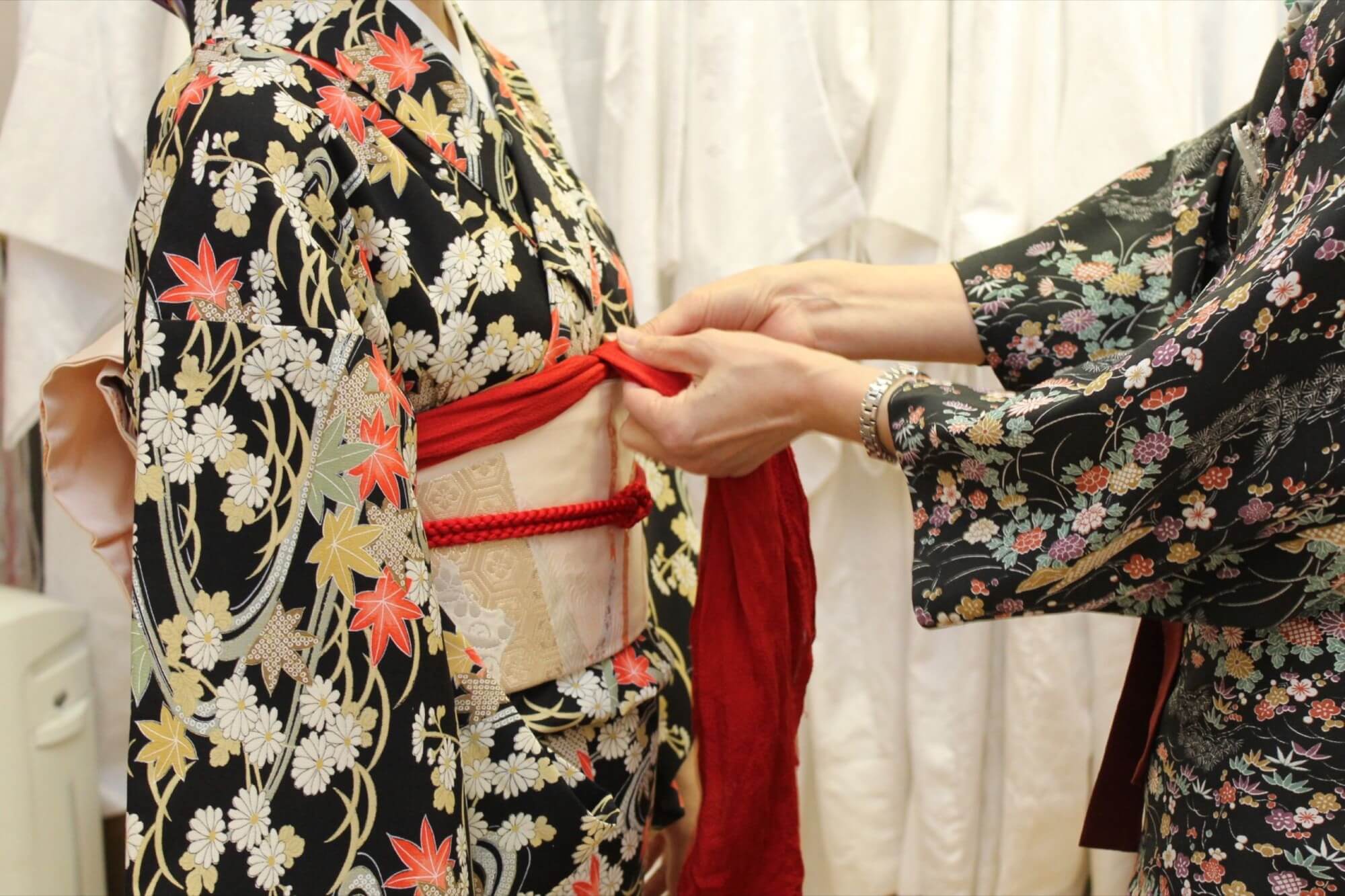
For those compelled by wanderlust and ready to embark on a journey,
Matsushima is a highly recommended location renowned as a sightseeing area
celebrated for its picturesque pine-covered islets. Elevate your travel
experience by immersing yourself in the cultural richness of the region
through a kimono or yukata-wearing adventure, embracing traditional
Japanese attire.
One notable option for this unique experience is provided by Ume Luv, a
kimono rental shop situated in Matsushima. Established by owner Yumi
Nakano two years ago, Ume Luv offers a distinctive and Muslim-friendly
kimono- and yukata-wearing experience, catering to the diverse preferences
of visitors seeking to blend cultural exploration with their travel
adventures in Matsushima.
To accommodate Muslim women, the staff takes special care in suggesting
colours that harmonize with their head scarves, ensuring a culturally
respectful and personalised experience.
Address: Fugendo-13-27-2F Matsushima, Miyagi District, Miyagi 981-0213
Access: 10-minute walk from Matsushimakaigan
Station (Senseki Line)
Website: https://www.umeluv.jp/
Iwate
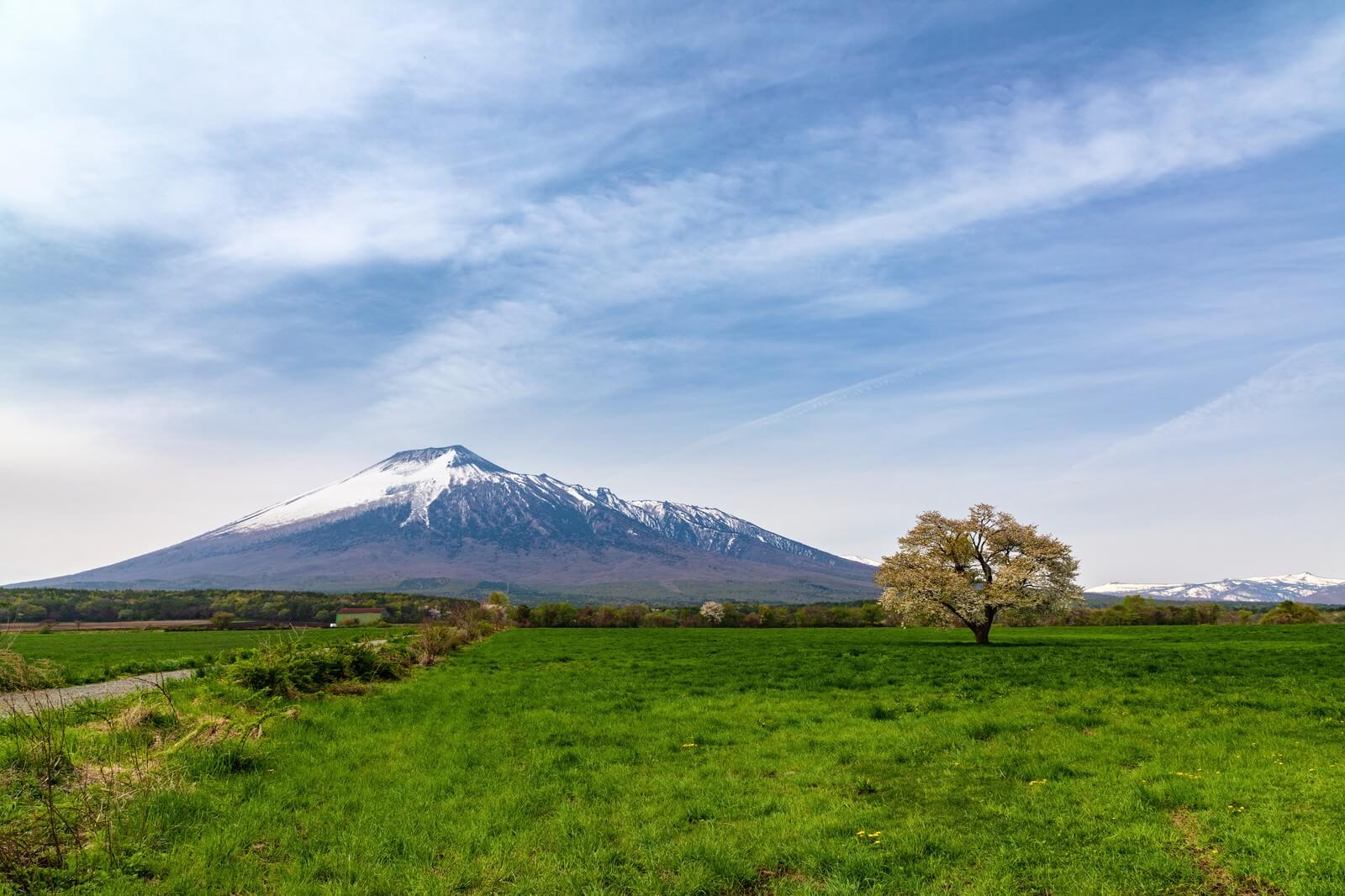
Iwate Prefecture is also located in the Tohoku region of Japan, and its
capital city is Morioka. Iwate’s major city, Morioka, is approximately 460
kilometers North of Tokyo, and about 160 kilometers North of Sendai.
You can travel to Morioka from Tokyo by:
Shinkansen (Bullet Train): The fastest
and most convenient way to travel from Tokyo to Iwate is by
Shinkansen. Take the Tohoku Shinkansen from Tokyo Station to Morioka
Station. The journey takes around 2.5 to 3 hours, depending on the
type of Shinkansen (e.g., Hayabusa, Yamabiko).
Express Trains: Similar to the route to
Miyagi, you can take express trains like the Hayabusa, Yamabiko, and
Nasuno, which are not as fast as the Shinkansen but are still
efficient.
Iwate prefecture is known for its scenic beauty, rich cultural heritage,
and delicious cuisine. You’ll be pleased to know that Iwate has a number
of Muslim-friendly facilities and services available to make your trip
more comfortable.
For example, APPI Ski Resort in Iwate prefecture is one of the most
Muslim-friendly ski resorts in Japan, catering to Muslim needs.
Additionally, the city of Morioka in Iwate is gradually becoming more
Muslim-friendly, with a growing number of restaurants and hotels offering
Muslim-friendly food and facilities.
1. Hiraizumi
Hiraizumi boasts a preserved ensemble of diverse temples and gardens,
meticulously crafted in adherence to Buddhist principles, with a
particular emphasis on Pure Land Buddhism. These architectural and natural
wonders, designed to manifest an ideal world, represent a synthesis of
external influences and indigenous innovations in Japan.
The attempt to articulate an ideal realm is a fascinating convergence of
international inspiration and distinctive local advancements. Notably, the
distinctive representation of the ideal world in Hiraizumi, grounded in
Buddhist philosophy, unfolds as a truly unique and exceptional expression
of spiritual and cultural synthesis.
Discover the Hiraizumi Rest House, strategically located in close
proximity to the World Heritage sites of Chuson-ji Temple and Motsu-ji
Temple. Enhance your visit by accessing the dedicated prayer room
available at this facility, providing a convenient and accommodating space
for visitors near these historically significant landmarks. Visit a prayer
room near the World Heritage sites of Chuson-ji Temple and Motsu-ji
Temple. Please contact them in advance.
Address: 61-7 Izumiya, Hiraizumi, Iwate
029-4102
Access: 8-minutes from JR Tohoku Main Line to
Hiraizumi Station Ichinoseki—Hiraizumi
Website: https://hiraizumi.or.jp/en/heritage/
Hiraizumi Rest House
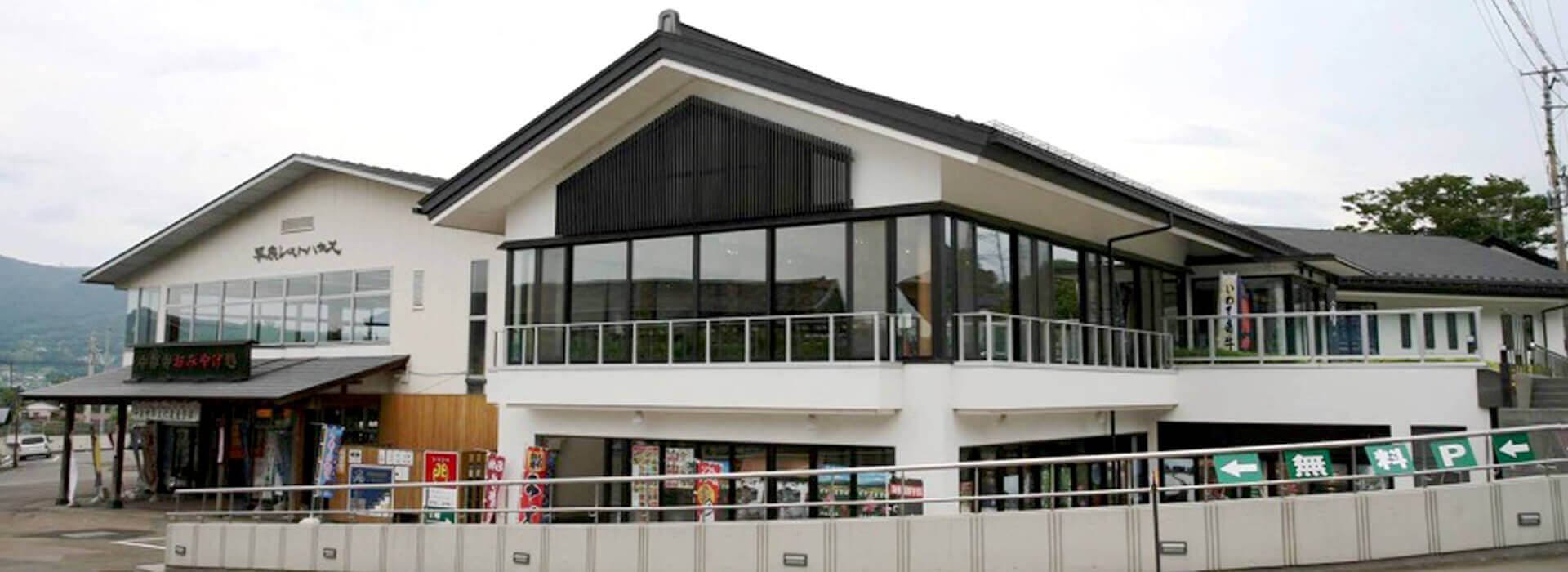
Address: 10-7, Sakashita, Hiraizumi,
Hiraizumi-cho, Nishi-Iwai-gun, Iwate
Access: 12-minutes from Hiraizumi Cultural
Heritage Center
Website: http://www.hiraizumi2011.jp/en/index.html
2. APPI Ski Resort

Nestled in the Tohoku region, APPI Ski Resort emerges as a preeminent
destination, distinguishing itself as the foremost Muslim-friendly ski
resort in Japan, dedicated to meeting the unique requirements of Muslim
visitors.
Operated under the guidance of Malaysia Halal Cooperation, Nanashigure,
located within Hotel APPI Grand, stands out as a distinguished restaurant
offering authentic Japanese cuisine with local halal certification. The
diverse menu encompasses a range of Japanese culinary delights, including
Ramen, Sushi, Tempura, Udon, Hot pot, Beef bowl, Matcha, and more.
Notably, Nanashigure is adept at tailoring your preferred Japanese dishes
according to both your budget and specific requests.
For added convenience, the restaurant also features original halal bento
(lunch box) options that can be delivered to the food court, catering
specifically to Muslim patrons indulging in skiing activities. This
comprehensive approach ensures a delightful and customizable dining
experience for visitors seeking halal Japanese cuisine at Hotel APPI
Grand.
Guest rooms provide a quiet and private area for prayer and offer a shower
room, facilitating the performance of wudu. Also, mats are available for
rent, ensuring visitors have access to the necessary amenities for their
religious practices within the comfort of their rented guest room at APPI
Ski Resort.
Please contact them in advance to prepare the meals and prayer room.
Address: APPI Kogen, Hachimantai City, Iwate,
Japan 028-7395
Access: The ski resort is connected to JR
Morioka Station by bus. The bus departs every 1–2 hours, and the journey
takes 50 minutes.
Website: https://www.appi-japan.com
3. Morioka Castle and Morioka Masjid
Morioka shares a noteworthy similarity with Sendai, as both cities feature
a prominent castle that commands a view of their urban landscapes. Morioka
showcases the Morioka Castle Site Park, offering visitors a unique and
historical perspective on the city’s castle heritage. Each city’s castle
site holds distinct cultural and historical significance, contributing to
the rich tapestry of experiences awaiting those who explore Morioka and
Sendai alike.
For Muslim travelers, locating a suitable place for prayer is a primary
concern, particularly in areas like Morioka and the broader Iwate region,
which are comparatively more rural than cities with larger Muslim
communities such as Tokyo, Osaka, and Kobe. Fortunately, Morioka addresses
this need with Masjid Al Tawheed, commonly known as Morioka Masjid.
Despite its unassuming appearance, this mosque serves as a central
gathering place for Muslims residing in Morioka and nearby cities. Beyond
providing a space for daily prayers, Morioka Masjid actively organises
sessions like Friday prayers and Quran classes, fostering a sense of
community and religious engagement for Muslims in the region.
Address: 1-1-37 Uchimaru, Morioka City, Iwate
Access: Visitors can take a 18-minute walk to
the park from JR Morioka Station.
Website: https://www.tohokukanko.jp/en/attractions/detail_1451.html
Morioka Masjid
Address: 2-23 Abetatecho, Morioka City, Iwate
020-0126
Access: Visitors can take a 30-minute walk to
the masjid from JR Morioka Station.
Website: https://www.facebook.com/masjidaltauheed/
Closing Note
In concluding your visit to Miyagi and Iwate, Japan, as a Muslim traveler,
it’s essential to reflect on the enriching experiences these regions offer
while considering cultural and religious sensitivities. For prayer needs,
rest assured that mosques and prayer spaces are available, with
establishments like Sendai Masjid in Miyagi and Masjid Al Tawheed in
Morioka catering to the Muslim community.
Delight in the local culinary scene by savoring Muslim-friendly options at
designated restaurants, such as those at APPI Resort. Ensure
a seamless dining experience by confirming the ingredients used in dishes
and exploring Muslim-friendly alternatives when necessary.
When venturing into historical sites and scenic spots, appreciate the
cultural significance and beauty that these regions offer. Don traditional
Japanese attire, explore the well-preserved castle sites, and relish the
seasonal changes at attractions like Morioka Castle Site Park.
Remember to check local guidelines and resources to make the most of your
visit while respecting the unique character of Miyagi and Iwate as
Muslim-friendly destinations in Japan.
You can refer to this link for
Muslim-friendly information in Tohoku.
